Home » Jazz Articles » Interview » Miguel Zenon: Jazz Sherpa
Miguel Zenon: Jazz Sherpa
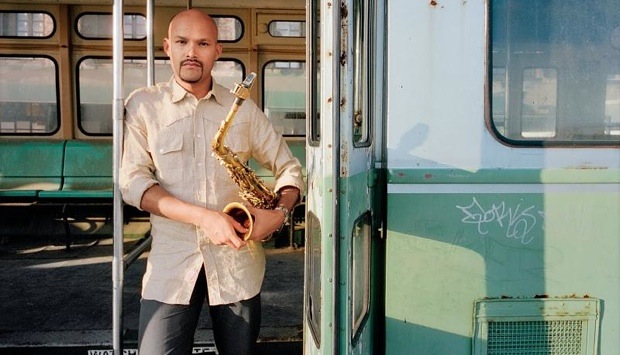
There are certain taboos that we walk around as far as what this music is. I wanted to give the people the opportunity to judge this music for themselves ... and decide if they like it or not, and just have the opportunity to enjoy music for what it is.
Zenón has taken jazz awareness and education to new levels through his work as a Kennedy Center Jazz Ambassador to West Africa, a guest lecturer and teacher at Berklee College of Music, New England Conservatory of Music and elsewhere, as well as with his founding of Caravana Cultural, a quarterly series of concerts and talks aimed at bringing jazz music "to the people" in his native Puerto Rico.
Zenón's work as an educator extends to his creative endeavors as well. His latest release, Alma Adentro (Marsalis Music, 2011), is his third so far to examine and interpret a musical form from his homeland, in this case songs from the Puerto Rican popular songbook of the mid-20th century.
All of this work—and much more—earned Zenón a prestigious MacArthur Foundation "genius grant" in 2008. With its $500,000 prize allocated over five annual installments, the award not only recognizes Zenón's growing impact in the world of music but has afforded him the resources to continue to pursue his passions with vigor.
Chapter Index
Teaching and Learning
All About Jazz: Was your first experience with jazz through a formal educational setting? How did you come to be familiar with and connected to jazz?
Miguel Zenón: Well, I came into music through a performing-arts school—middle school and high school—that we have in Puerto Rico, that a lot of musicians went to [Escuela Libre de Musica]. [Saxophonists] David Sanchez, Angel Marrero, and a lot of Puerto Rican guys went to the same school also. But that school- -all the training is classical, so there's no jazz or anything, or any kind of formal jazz teacher, or anything like that.
I discovered jazz while I was going through that school—just some friends who were passing around tapes of Charlie Parker and Miles and all that, and I got exposed to it. And because I was trained in a specific way, what drew me to jazz—like when I heard Charlie Parker for example, that was one thing that I remember—what drew me to it was just the technical proficiency of it. You know, I didn't understand anything about improvisation or anything like that, but what drew was the technical proficiency that these musicians had.
 I realized that while they were improvising, they were creating and being so technically proficient, and had so much mastery of the instruments; that just kind of blew me away. I mean, that was kind of like what put me over, and it became a thing where I really wanted to understand it. Because there wasn't any formal training or anybody that I could go to and say, "Can you explain this?" I just listened. A couple of my friends were equally interested, and we passed around tapes and listened to National Public Radio and bought what we could, and played—tried to imitate some of the sounds we heard.
I realized that while they were improvising, they were creating and being so technically proficient, and had so much mastery of the instruments; that just kind of blew me away. I mean, that was kind of like what put me over, and it became a thing where I really wanted to understand it. Because there wasn't any formal training or anybody that I could go to and say, "Can you explain this?" I just listened. A couple of my friends were equally interested, and we passed around tapes and listened to National Public Radio and bought what we could, and played—tried to imitate some of the sounds we heard. I started growing on my own for a little while, and I found more and more people who were interested [in jazz], mostly people my age. So a lot of the early jazz experiences that I had were all kind of on my own, all self-taught. Even though I was training as a musician, I wasn't trained as a jazz musician.
AAJ: Were your teachers in the performing arts school critical of jazz? Did they try to dissuade you?
MZ: No, no they weren't critical at all. They weren't critical at all. I mean, they were very enthusiastic about the idea. I think they just didn't know how to help me. I was lucky I had really good teachers. And my teachers, most of my teachers, were not only classically trained but they were very, very active in popular music in terms of dance music, Latin American music, that kind of thing.
They were really well versed in playing music that was connected to the people, so jazz kind of rang the bell for them, in that sense. They guided me to places where they thought I could go and gave me things that they thought I could work on, tried to get me some books and all this.
But also, there was a little background. Like when I was going to high school, for example, my teacher—he was also David [Sanchez]'s teacher; David went there maybe eight years before me. So by that time David was already playing with Dizzy [in Gillespie's United Nations Orchestra] and making records and all that, so I did have a point of reference in a way. My teacher would say, "OK, I'll give you things that I gave him, and maybe it'll help you too," and that kind of thing. But I didn't really get any kind of formal jazz training at all until I got to Berklee.
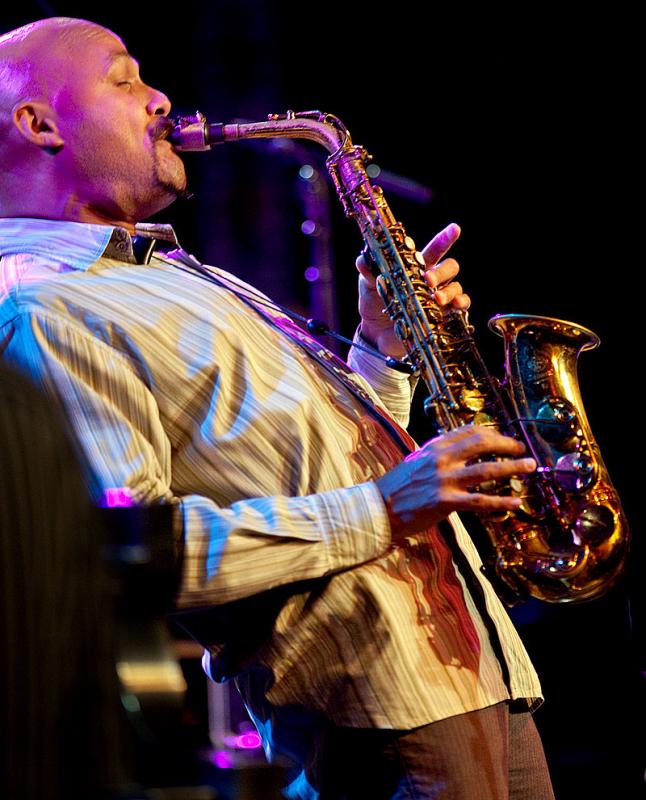 AAJ: And then the world was wide open?
AAJ: And then the world was wide open? MZ: Yes, oh yes. It was incredible. When I decided that I wanted to play music, it was clear to me that I wanted to play jazz. I didn't want to play anything else. If I was going to play music, I wanted to do that. And I knew that I wanted to go to Berklee. I knew I wanted to go to school, I knew that I wanted to continue studying and I knew that I needed to study.
And actually, it took me a while to get there, about a year and a half between the time that I graduated high school and I went to Berklee—because I come from a working- class family. My family didn't have any money to help me with; I basically had to save everything from the [plane] ticket to tuition and a lot of that stuff by playing gigs and pop gigs and all this stuff.
But when I did make it over there, it was a shock in a way. It was like a good kind of shock. It was almost like to going the Promised Land. It was all these people there like me, who wanted to play, and wanted to play all the time, and wanted to hear music all the time, and wanted to talk about music all the time. And teachers who were telling me, "OK, you're on the right track, but this is what it is [you are trying to figure out]." It's almost like I would be working on this thing for a year [on my own] and the teachers told me, "OK, so this is what it is," and they just told me, like, right there in a couple of days—that kind of thing where, like, if you have the right person kind of pointing you in the right way it really helps. And I had some really good teachers.
But mostly what I got out of Berklee was just being surrounded by so many people my age who were a lot better than I was and knew a lot more about jazz than I did, and they inspired me in a lot of ways. And also I got the chance, while I was in Boston, to meet [pianist and composer] Danilo Pérez and be around other people like [saxophonist] George Garzone and [drummer] Bob Moses—that also helped.
AAJ: Was there a musician or a mentor you looked up to who imparted a piece of wisdom or said something to you where you realized, "This life is possible; I'm going to do this"?
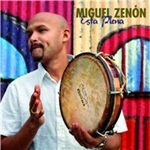 MZ: Yes. Definitely I have to say Danilo Perez, there's no question about it. When I was getting into jazz in Puerto Rico, as I said, I had someone like David as a frame of reference because we shared a lot of the same experiences. But then I discovered Danilo's music and a lot of other Latin Americans who were making music, making jazz music, while still maintaining their identities as Latin Americans.
MZ: Yes. Definitely I have to say Danilo Perez, there's no question about it. When I was getting into jazz in Puerto Rico, as I said, I had someone like David as a frame of reference because we shared a lot of the same experiences. But then I discovered Danilo's music and a lot of other Latin Americans who were making music, making jazz music, while still maintaining their identities as Latin Americans. When I got to Boston, I sought him out; I remember going to a concert and jumping on stage as soon as he played the last note and introducing myself. And I'm not usually that guy—that's not something that I would usually do.
He was really open and very welcoming and really supportive. I would go to his house pretty much every week to get all these basically free lessons and just play and talk about music. And he was just so supportive and everything, and really—I mean it's like you said—he kind of gave me this sense that this is possible and it could happen. And to meet someone who was also just so passionate about it—I mean, I was seeing him grow and get better and better. And he was still working really hard all the time, and then I'd get better. It's really very inspiring.
And the same thing when eventually I did get to meet David and other people who are inspirational, like [saxophonist] Steve Coleman and people like that. You know, when you meet someone that you hold in high regard and they surpass what you expected from them, it clearly gives you a push in terms of inspiration. So I would especially say that Danilo was definitely the first guy that I can think of, especially once I moved to the States, that gave me that push.
AAJ: It sounds like you had some key support at specific points along the way: the community of musicians, a family who would support your decision to enter the arts...
MZ: Yes. But I have to say the [family] support was not immediate; it took some time. Like I said before, I was really into school, and I was actually a really good student. For the longest time before I went into music, I wanted to do something that had to do with math or science or something like that. I was already accepted into this really good engineering school in Puerto Rico. I blew that off and told my mom, "I don't want to be an engineer anymore; I want to play music." And she was shocked, of course.
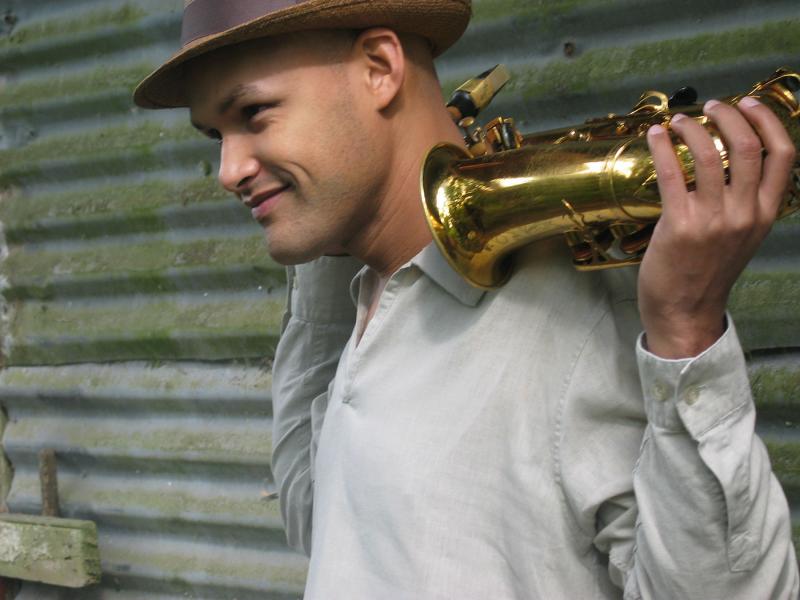
But I think slowly she saw that I was passionate about it, and she trusted that I was going to do the best I could to succeed and progress it. Even when I went to Boston, I kind of struggled for the first year. I remember she would send me, like, 20 dollars in the mail so I could go buy some groceries. After a while I started playing gigs, and things started happening, and she started seeing that it was actually possible to make a living out of playing music. And, you know, things started getting better and better, and that kind of won her over in a way.
AAJ: When did you realize that you had a distinct voice, and that you had something to say on the horn?
MZ: I don't know. That's a hard question. It's hard to pinpoint. I think—for the longest time, and I kind of feel that way now—I felt that I was just filling up holes in terms of my knowledge of tradition and language where jazz is concerned. That was my main focus; from the time that I got to Boston, I just wanted to learn jazz and get better and more knowledgeable about the things that came before me and all the players—and describing and listening and checking out records, and learning tunes and that kind of stuff.
So from that to me working on my own thing, it was all kind of connected. Really, whatever personality I have as a player grew out of me being inspired by other players and just checking them out extensively. So I still kind of feel it's a process—there are certain things that I do feel very strongly about, and I feel that they could be things that kind of represent me as an individual player, or whatever, but I do feel that everything is inspired in some other place.
AAJ: You are speaking very personally about something that is a general current running through jazz history: the absorption of everything that came before—the players, the technical mastery—and then the setting of all that aside and transcending it in the art of improvisation. It's having that foundation but doing something else with it.
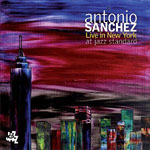 MZ: Yes. I think, for me, it was more a process of just finding priorities. The priorities that I had in Boston when I was a student there and the priorities that I had when I moved to New York and started hanging and playing with some of my heroes changed drastically. And the things that I felt that I needed to work on also changed drastically. I think, in a way, it's almost like you've got to realize what you need to do as a player in order to be able to communicate in terms of improvising, in order to be able to communicate more and more easily. And being able to master the instrument is one way, and being able to understand the language that you're dealing with is another thing; just being able to develop a sound on your instrument is another thing. But these are things that were not always a priority—they appeared as I progressed as a musician, and I started understanding what I needed to do in order to get better.
MZ: Yes. I think, for me, it was more a process of just finding priorities. The priorities that I had in Boston when I was a student there and the priorities that I had when I moved to New York and started hanging and playing with some of my heroes changed drastically. And the things that I felt that I needed to work on also changed drastically. I think, in a way, it's almost like you've got to realize what you need to do as a player in order to be able to communicate in terms of improvising, in order to be able to communicate more and more easily. And being able to master the instrument is one way, and being able to understand the language that you're dealing with is another thing; just being able to develop a sound on your instrument is another thing. But these are things that were not always a priority—they appeared as I progressed as a musician, and I started understanding what I needed to do in order to get better. AAJ: How did education come to be so important to you, both in terms of your own learning as well as your own desire to teach?
MZ: Well, in terms of my own development, I was always the kind of person that functioned well as a student. I did well in school, and I was always very comfortable in that. Even when it wasn't about music, I was really into that whole interaction. I developed a sense of routine in terms of the way I learn things myself and the way I go about approaching new information and trying to learn and get better at things. Going through school and college, I developed a certain routine for the way I learned.
I went through different situations, like with Jazz Ambassadors, and doing clinics and seminars or teaching privately, or whatever—different situations, all geared towards the same purpose, which was communicating ideas or the way you think about certain things to other people in a practical way so that it all makes sense to them. I had to learn how to explain things. And by having to do this, I not only got more comfortable in terms of explaining, but also in a way learned some things in a more profound way— things that I already knew—by having the opportunity to explain it to somebody else. And it was actually very hard at the beginning. There are certain things that I've never put into words, so it was hard. But then I found some shortcuts and things that you could do to get to people, in certain ways, to make that experience of teaching and learning more effective, both for me and for the other party.
 AAJ: The Caravana Cultural grew out of these experiences?
AAJ: The Caravana Cultural grew out of these experiences? MZ: The Caravana Culture that you're referring to—that came as a desire that grew out of not necessarily thinking about how to educate people, but more out of a desire to go back to the really simple nature of playing music. I wanted to go back to the way I felt when I started playing music, where I wasn't thinking about making a living, or whatever. It was just about having fun and really enjoying what I was doing, and not having to think about anything else but music—not having to think about ticket sales and publicity and all these things.
So I wanted to get back to that feeling, and actually it was inspired by this documentary that I saw by a rock band from Iceland, Sigur Ros. They did a documentary where they basically conducted a series of free concerts in Iceland to thank the public for their support. I thought it was really beautiful, the way they went through it. They did it very informally, and people just came out and enjoyed the music. And sometimes they were in a school, sometimes they'd do it in a field or a factory. And it was really nice.
I thought it would be great if I could do something like that or similar in Puerto Rico with jazz, which is the music that I've been involved with for the last few years. And the idea materialized when the whole thing with the MacArthur grant happened. That helped really make it more a reality, in the sense that now I can do this—I now have the [financial] support to do something like this.
So eventually it grew into a more concrete project where we would present a series of concerts. I have a couple foundations in Puerto Rico that are helping me put the concerts together in terms of production and all that. But basically, the idea is to organize a series of concerts, free concerts of course, but specifically we're going into the rural areas of Puerto Rico where they don't get a lot of culture activity at all—not only concerts but anything else. The idea is to try to bring the music to places where usually it doesn't go, but also to try and eliminate preconceived ideas of what jazz is and the kind of people that should listen to jazz and should be exposed to jazz.
I think, especially in Puerto Rico but really everywhere, there's this idea that in order to listen to jazz and enjoy it, you have to be educated in certain things and be from a certain level, or whatever. There are certain taboos that we walk around, as far as what this music is. And I didn't think that these were true, and I wanted to give the people the opportunity to judge this music for themselves, to really get a chance to come to a concert and listen to music—they listen to Charlie Parker or whoever, and decide for themselves if they like it or not, and just have the opportunity to enjoy music for what it is.
So in that sense it's more like cultural investment in my country. And the more time that I spend out of Puerto Rico, I've been more and more involved in things that have to do with Puerto Rico—not only my home music but also trying to do things there I felt that are necessary and are not there and weren't there when I was young.
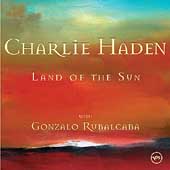 AAJ: What has the reaction been to the events?
AAJ: What has the reaction been to the events? MZ: The reaction has been really great, really positive. We've done two concerts already, one in February [featuring the music of Miles Davis] and one in June [focused on Charlie Parker]. And I think, in general, especially the one we did in June—I mean the first one was great too—but I think at the one in June, I was a little less stressed out and could pay a little more attention.
I got the sense that people had this reaction like, "OK, I'm listening to this music for the first time, and I'm enjoying it just because I like it. It's not something I'm familiar with, but I'm enjoying the show, and I'm enjoying the interactions that I see on stage and I hear." And it was that kind of thing where you're presenting something different, and you know that they've never experienced anything like that before, but you feel that there's sort of, like, an approval, almost like a natural reaction to just, like, the core— natural core of music. It was really special, really special.
AAJ: So people can approach the music or experience the music really just on its own terms. There's no baggage.
MZ: Exactly, yes. That's the idea.
The SFJAZZ Collective
AAJ: As the sole founding member of the SFJAZZ Collective, could you tell us a little bit about what you get from your involvement there that keeps you engaged over such a long period of time?
 SFJAZZ Collective, from left: Robin Eubanks, Avishai Cohen, Eric Harland
SFJAZZ Collective, from left: Robin Eubanks, Avishai Cohen, Eric HarlandMark Turner, Miguel Zenón, Edward Simon, Stefon Harris, Matt Penman
MZ: Yes. Like you said, I'm the sole founding member, sort of by default just because I'm still there. Everybody's got their reason why they come in and out; it's all personal, I think. For me, when I came into the band the first year [2004], I remember talking to [Collective co-founders] Joshua Redman and Randall [Kline] and they invited me. They told me who was going to be there: Bob and Nicholas and Brian all came over there [vibraphonist Bobby Hutcherson, trumpeter Nicholas Payton and drummer Brian Blade were all founding members with Zenón]. I mean, it was almost like a joke that they were talking to me!
For the longest time, me being the youngest guy there, I just took it as, "I've got to take advantage of this as long as it lasts because this is a great opportunity." And it was that kind of thing where I just wanted to be around these people for as long as I could. And, I think, as things progressed and as people started coming into the band, and because I was there for a long time, I started getting a little more seniority and all that. The whole dynamic of the band changed a little bit through the years, and I think it's progressed [musically].
It's interesting because with being the Jazz Collective, this band where everybody is represented equally, it's become more like that through the years. The band is more of a collective now than what it was when it started because it's developed a character and people are coming to the band; they understand the way this band works. It's different; it's very different. So in that sense, it's something that I really enjoy—just seeing that development in the band and being part of that, and doing what I can to keep that the way it is. I enjoy being there, and I enjoy the fact that we get a platform to write music, and we have a lot of time rehearse. I really like the guys in the band, and I expect to be there for as long as I can. I know things change, but I enjoy the space where I am now in terms of that band.
 AAJ: Is there a notion that no one's a sideman, so everybody will either be expected to write and arrange and influence repertoire? Does everybody come in engaged?
AAJ: Is there a notion that no one's a sideman, so everybody will either be expected to write and arrange and influence repertoire? Does everybody come in engaged? MZ: Yes. I think everybody comes in already knowing that. And also—not only in the sense that there are certain things that are expected from you—at some point, somebody's got to be the leader. At some point, you're going to lead the ensemble, be it [in] a rehearsal or a gig; you've got to make some decisions.
A lot of the people in the band are leaders too, and have been for a long time. It could also be a challenge for them to have to step down from that platform of the leader and have to say, "I'm just part of the band." That could be a challenge, and I know that it has been at some point for some of the people that have come to the band.
The more that we, as the members of the Collective, can learn and understand, and are comfortable with that notion of you have to be a leader at some point, but also it's really about the Collective—it's not about the individual, it's about what we can do together— and the more we understand that, the better the music we play becomes, and the better the chemistry is.
AAJ: Is it easy for you to switch modes like that, to give yourself over to the other composers and their arrangements, or take direction? Can you do that with relative ease and comfort?
MZ: Yes, actually it's pretty easy for me. I have to say it's not something that I feel uncomfortable with at all. In a way, that's kind of the default mode for me, because when I got into music, I didn't do it to have my own band and play my own music and all that. It's more like I just want to play with people. And I enjoy it. I enjoy hearing what people have to say and not having to give directions and lead the whole time. I think it's great. We all want to have the opportunity to do that at some point, but I definitely don't feel like I need to be doing that all the time.
AAJ: Is it more challenging to write and arrange for the Collective versus your own group, given that there's so much less experience with the members of the Collective than with your own band?
MZ: No, I don't think so. I think it's about the same. It was challenging for me at first just because of the instrumentation, and you have to learn how to deal with that. At the time, I wasn't experienced: I'd never written for vibes or four-horn arrangements, and trying to come up with the right thing, and learning the range of all the instruments, and learning the players and what they could do, and all that.
 But the good point of the band and the organization is: they've done a really good job out of choosing who they bring into the band. And the way that usually works is they have suggestions, and we have suggestions, and we basically choose as a band who we want to come in. And it's usually people that we know well and we play with, and we know what they can do, as in the case of [saxophonist] Mark Turner and [pianist] Edward Simon and [trumpeter] Avishai Cohen, who came in a couple of years in. We all knew them real well and knew the way they played and how good they played their instruments.
But the good point of the band and the organization is: they've done a really good job out of choosing who they bring into the band. And the way that usually works is they have suggestions, and we have suggestions, and we basically choose as a band who we want to come in. And it's usually people that we know well and we play with, and we know what they can do, as in the case of [saxophonist] Mark Turner and [pianist] Edward Simon and [trumpeter] Avishai Cohen, who came in a couple of years in. We all knew them real well and knew the way they played and how good they played their instruments. So even though they're coming into a band, it basically becomes a new band. I don't think it really affects the way I write, just because you know that you're not going to have to think about, "Oh, are they going to be able to play this?" You know that the people you're bringing in are going to be at the level that they're going to be able to play anything, and you're not going to have to change.
Leading a Band
 AAJ: Branford Marsalis called your group "a band's band." How important is it to you and your music to have had such stability in the lineup?
AAJ: Branford Marsalis called your group "a band's band." How important is it to you and your music to have had such stability in the lineup? MZ: It's very important, I think, just in the sense [of] what I want to do as a leader and the kind of music I want to play in my own groups. One thing that I've learned by playing in other bands and interacting with other people is that chemistry is very important to me. And being around people that you like and you can actually hang out with and be friends with, and all that, is important—it's kind of crucial for me in terms of making music and just being together for a long time.
I think, in a way, I got lucky too, because I've found players that I like who also like me and like my music and enjoy it and enjoy playing together. But also, I think I've found a way to keep a personality as a leader and a composer, pinpointing the strength of these players and making them sound good while playing my music.
I've been lucky and blessed that I've been able to play with the same people for so long. And I don't have any plans of changing anything. I'm not one of those guys that go through projects and goes through, "OK, I'm just going to bond with this guy and this guy now and do this record, and then I'm going to do another band with so-and-so." For me, it's about just keeping the guys and adding layers, that kind of thing.
I'm always thinking about what's going to happen when we go play. When we go play, we go play as a quartet, as a band. You know, the music is developed within us, and then, when we go play, it's played by us. So that's kind of my priority: what's going to happen when we get to the stage and play. And I want to be around the people that I like when that happens.
AAJ: How have you been able to keep the group together, especially given that you have a lot of projects and work in situations outside of just your band.
MZ: Yes, it's a good question. Everybody's real busy, and I'm not one of those guys that's going to be playing with my band all the time, because I'm playing with other bands and doing other things. And I enjoy doing that, too. But I think I've also surrounded myself with guys who, even though they are pretty faithful and they give priority to what we do as a band, they actually play with other people, too. So, you know, I don't have to worry about, "Oh man, I'm not working, so this guy's not going to be able to pay his rent."
It's similar, actually, to how the Collective works, in a way. People commit to specific periods, and then the rest of the time, you do your own playing. You play with other people, you play with your own bands, you do other things, but I think it's about commitment. And I've just been lucky that I've got guys who are committed.
AAJ: And those other experiences that you all have individually must come back and feed the group's vocabulary.
MZ: Yes, of course. Of course. The more we play with other people, the better we get when we play together. We get different experiences, and we play music again and we sound different. Yes, exactly.
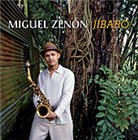 The Music of Puerto Rico
The Music of Puerto RicoAAJ: Was there a particular purpose or plan in how you approached the order of your recordings of the music of Puerto Rico, first with Jibaro music on Jibaro (Marsalis Music, 2005), and then the Plena music on Esta Plena (Marsalis Music, 2009), and now the Puerto Rican songbook on Alma Adentro?
MZ: There wasn't really a long-term plan like that. I like to think long term, but in this case there wasn't a plan like that. They all happened individually for specific reasons. In the case of the Jibaro and the Plena projects, they happened because I was interested in learning more about this music, the traditional music. And I started studying and researching and talking to musicians and listening to records and buying books, and all that.
While I was doing that, I was able to get support from, in the case of the Jibaro record, the New York Council for the Arts, and for the Plena project, it was the Guggenheim Fellowship. That kind of pushed me over the edge to say, "OK, now I'm going to do something, and I can expand the research, and I can learn more, and I can make a record, and all that; you know, I can write some music. So in those cases, that was the approach. And both of those styles are folklore music, traditional music.
There's a bunch of other stuff—the traditional music that I haven't even gone into that deeply because I feel that it's kind of like a process. I like to go through it slow and get into one thing and do that thing for a little while, and then document it and then move on into the next. That was the process for those things.
For Alma Adentro, it was a little similar, in the sense that it was Puerto Rican music. But it wasn't my own music; I was dealing with music that was already there. I was basically arranging songs. The approach was different, in that this was not traditional music but popular music, music that was very well known. I took it with the approach of saying, "OK, I want to represent my music, and I want to learn more about where this music came from and what it represents to me and my culture and the people of Puerto Rico and Latin America." It was a little different because I was going through a filter of something that was already there, whereas in the other two records, I took a mold and grew original music based on that mold.
AAJ: So for the first two projects you wrote within a style. You said, "I want to contribute to this canon of music."
MZ: Exactly, exactly. Whereas, in this record it's really a tribute in a way, where it's basically my version of all these classics.
AAJ: How did the songbook music of Puerto Rico spread? In America, radio played a big role as well as film and theater. Broadway helped popularize the material. How did the music become popular in Puerto Rico?
MZ: It's actually pretty easy to explain. A lot of these composers—at least the composers that I focus on on this recording, these five composers—at some point in their life, they spent a lot of time outside of Puerto Rico, specifically in New York City, which was, at the time, a center for Latin American music for a very long time. You could say something like the '20s to '70s; most Latin American artists were based in New York City, no matter where they were from.
So somebody like [the composers] Rafael Hernandez or Pedro Flores, even though they were Puerto Rican, they created most of their music outside of Puerto Rico. And their music became known in Puerto Rico basically because they were able to be with such good recording companies and were able to put their music down and document it. And their music was passed around; as you say, it got to the radio. This is something that probably wouldn't have happened if they were to stay in Puerto Rico.
The same thing with [composers] Bobby Capo and Tite Curet Alonso—they all at some point lived outside of Puerto Rico and developed outside of the island. You know, in the case of Rafael Hernandez, he lived in Cuba also, he lived in Mexico, so he was almost like an international star in a way: he got to the point where a lot of people think he's Cuban and a lot of people think he's Mexican.
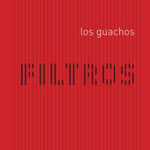 So it had to do with the usual things, the radio and the records, and all that. But I also think it has to do with the fact that these people, they were part of a movement that was taking place in New York at a certain point of the last century: like a Latin American movement that involved Puerto Rican musicians, Cuban musicians, American musicians and people from all over the place—the whole thing with the Mambo and the Tango and Latin American song, and all the stuff that was happening. They were involved in that, and they were major players. So I think that's kind of how this music got exposed.
So it had to do with the usual things, the radio and the records, and all that. But I also think it has to do with the fact that these people, they were part of a movement that was taking place in New York at a certain point of the last century: like a Latin American movement that involved Puerto Rican musicians, Cuban musicians, American musicians and people from all over the place—the whole thing with the Mambo and the Tango and Latin American song, and all the stuff that was happening. They were involved in that, and they were major players. So I think that's kind of how this music got exposed. And, you know, I'm putting all this music in the same pocket and saying, "OK, we're talking about the Puerto Rican songbook." But these players were all independent entities. They weren't thinking about writing Puerto Rican songs, they were thinking about writing a song for this or a song about this, a song for themselves, a song for a commercial. They were just writing music. And now we think about that music as Puerto Rican songs because those people were all Puerto Rican, and they were put into the same bag, but they were all doing things independently, and they found a way to march at some point.
AAJ: You mentioned as an aside that there's other music in Puerto Rico for you to explore and to look at. Have you started that process yet? Are you going to take another look at the island as a source for projects? What might that look like?
MZ: Yes, there's a lot more stuff to learn. There are other styles of music, of course, that I would like to go a little deeper into. There's a style of music in Puerto Rico called Bomba, like "bomb." And Bomba is basically the biggest representative of African culture in Puerto Rico. And it's very present and very thriving, in a way. I have this idea of, this very general idea, of making a connection between what Bomba is in Puerto Rico and how you can find similar things all over Latin America and the Caribbean and South America—similar styles to Bomba—and seeing how that traces back to Africa and the roots there. So that's something that's been kind of harboring in my mind for a little while, and at some point I'm going to tackle that.
I'm actually working on a project now that doesn't necessarily deal with Puerto Rican music, per se, but it deals with the Puerto Rican identities, especially Puerto Ricans in the United States and specifically in New York, and how these Puerto Ricans see themselves as Puerto Ricans or Americans or Nuyoricans, and how that affects their life and how has it affected the development of the City and what Latin America culture is in this country.
I've conducted a few interviews of some people from Puerto Rican descent who were born in the United States or New York, and I'm using these interviews to create pieces of music, basically. And it's something that we're going to be doing in February at Montclair [State University in New Jersey]. I've got a commission from the University there, so we're working on that pretty intensely.

AAJ: Many of the Afro-Caribbean locales—you mentioned Cuba and Puerto Rico, but add to that, maybe, Trinidad and Jamaica—are really small geographic spaces with relatively small populations, yet have an outrageous output of music per capita. What factors do you think account for that?
MZ: I have a little bit of an idea. I think from visiting places, like being from Puerto Rico and visiting Cuba and some of the Latin America countries where I think what you're talking about applies, I think there's a very central place for music within everyday life that you don't find everywhere. It might have something to do with the very strong presence of African traditions and certain things that kind of stay within culture.
In terms of my own experience, I feel that in places like Cuba and Puerto Rico and other places that have the similar qualities, I feel music within everyday life and with the general public, music is present everywhere, more than in other places and countries. And everybody plays a little bit, everybody sings a little bit, so it's that kind of thing where it's like an actual connection in everyday life.
AAJ: Much more integrated into life, it's more about folk art as opposed to high art or it's not separate from people's experience.
MZ: Exactly. Yes. There are certain elements of folklore music that I've always felt that when you hear them—even when you don't understand it, especially if it's folklore music that's come from the earth—even if you've never heard that music before, there's something about that music that kind of draws you in just because it's so human. And it's like you're saying it is music from the people—it's not something that's high art. It's really just there. And anybody can grab it; you don't even need to play an instrument. It's almost like you can just kind of walk in.
AAJ: Is there anything else that you feel it's important we cover?
MZ: We're excited to have this new recording out and to be playing the music. I'm hoping that things like this will draw people into checking the album out, to kind of expose Puerto Rican music—in this case, all these composers—to a jazz public or to people who might not know who these people are and might not have had the chance to be exposed to the music. So I'm hoping to plant a seed into exposing people to all this great stuff that's coming out of Puerto Rico and these great composers.
Selected Discography
Miguel Zenón, Alma Adentro: The Puerto Rican Songbook (Marsalis Music, 2011)
SFJAZZ Collective, Live in New York Season 8—Music of Stevie Wonder (SFJAZZ, 2011)
Antonio Sanchez, Live In New York At The Jazz Standard (CAM Jazz, 2010)
Miguel Zenón, Esta Plena (Marsalis Music, 2009)
Guillermo Klein, Filtros (Sunnyside Records, 2008)
SFJAZZ Collective, Live 2007 4th Annual Concert Tour (SFJAZZ Records, 2007)
Miles Okazaki, Mirror (Miles Okazaki, 2006)
Miguel Zenón, Jibaro (Marsalis Music, 2005)
Charlie Haden, The Land of the Sun (Verve, 2004)
Kendrick Oliver & The New Life Jazz Orchestra, Welcome To New Life (Sphere, 2003)
Quite Sane, The Child of Troubled Times (Rykodisc, 2002)
Miguel Zenón, Looking Forward (Fresh Sound New Talent, 2001)
Either/Orchestra, More Beautiful Than Death (Accurate, 2000)
Photo Credits
Page 1, Middle: Daniel Sheehan
Page 2, SFJAZZ Collective: Courtesy of SFJAZZ
Page 3, Top: Ben Johnson
All Other Photos: Courtesy of Miguel Zenón
< Previous
Until Tomorrow
Comments
About Miguel Zenon
Instrument: Saxophone, alto
Related Articles | Concerts | Albums | Photos | Similar ToTags
Miguel Zenon
Interview
Lawrence Peryer
United States
SFJAZZ Collective
David Sanchez
Charlie Parker
Danilo Perez
Bob Moses
Steve Coleman
Josh[ua Redman]
Bobby Hutcherson
Nicholas Payton
Brian Blade
Mark Turner
Edward Simon
Avishai Cohen
Branford Marsalis
Concerts
For the Love of Jazz
 All About Jazz has been a pillar of jazz since 1995, championing it as an art form and, more importantly, supporting the musicians who create it. Our enduring commitment has made "AAJ" one of the most culturally important websites of its kind, read by hundreds of thousands of fans, musicians and industry figures every month.
All About Jazz has been a pillar of jazz since 1995, championing it as an art form and, more importantly, supporting the musicians who create it. Our enduring commitment has made "AAJ" one of the most culturally important websites of its kind, read by hundreds of thousands of fans, musicians and industry figures every month.






















